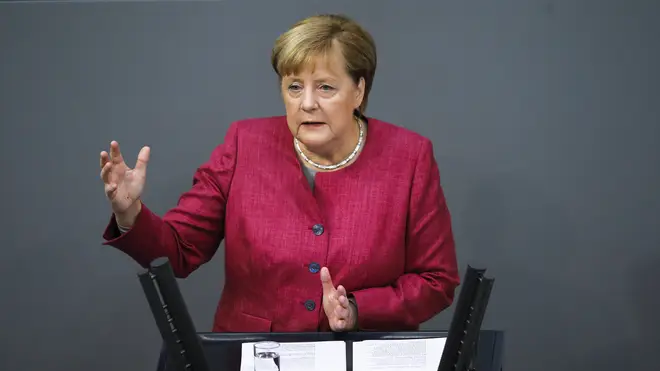
Ian Payne 4am - 7am
30 September 2020, 11:24

Germany’s Chancellor Angela Merkel welcomed Chinese President Xi Jinping’s announcement that China aims to be carbon neutral by 2060.
German Chancellor Angela Merkel has welcomed China’s plan to be carbon neutral by 2060, contrasting it with the United States’ failure to abide by the goals of the Paris climate accord.
In a speech to Germany’s parliament, Mrs Merkel stressed the significance of Chinese President Xi Jinping’s announcement last week as the European Union debates ramping up its own medium and long-term emissions reduction goals.

She told German MPs: “I think it’s beyond debate that we need to work with China when it comes to protecting the climate. China is now the biggest emitter worldwide and it’s very important that China contributes to efforts to protect the climate.”
Without naming the United States – the world’s second biggest source of man-made greenhouse gases – she added: “And unlike other large emitters, it’s encouraging that China stands by the Paris climate accord.”
Mrs Merkel said the target set by Beijing should be seen in light of the economic development China still has ahead of it compared to other industrialised nations.

“This is a very ambitious goal that should spur us in Europe to really fulfil our targets,” she said.
The EU recently proposed raising its target for cutting planet-warming greenhouse gases to at least 55% by 2030 compared with 1990 levels. Some of the 27-nation bloc’s members, particularly in the coal-reliant east, are opposed to the goal, however.
Germany’s environment minister said she hoped to reach consensus among EU members during her country’s current six-month presidency of the bloc.
International climate policy is gaining momentum and we are perhaps at a crucial turning point for the future of this planet,” Svenja Schulze said before a meeting with EU environment ministers in Berlin. “Two of the world’s most economically robust regions, the EU and China, are reinforcing the effectiveness of the Paris agreement.”
Asked whether Europe should not be setting its sights even higher and aim for a 65% reduction, as scientists have suggested is necessary to achieve the Paris accord’s goal of capping global warming at 1.5C, Ms Schulze said the current proposal envisages a review every five years.
She said: “What’s important to me is that we reach an agreement. We need this signal now.”